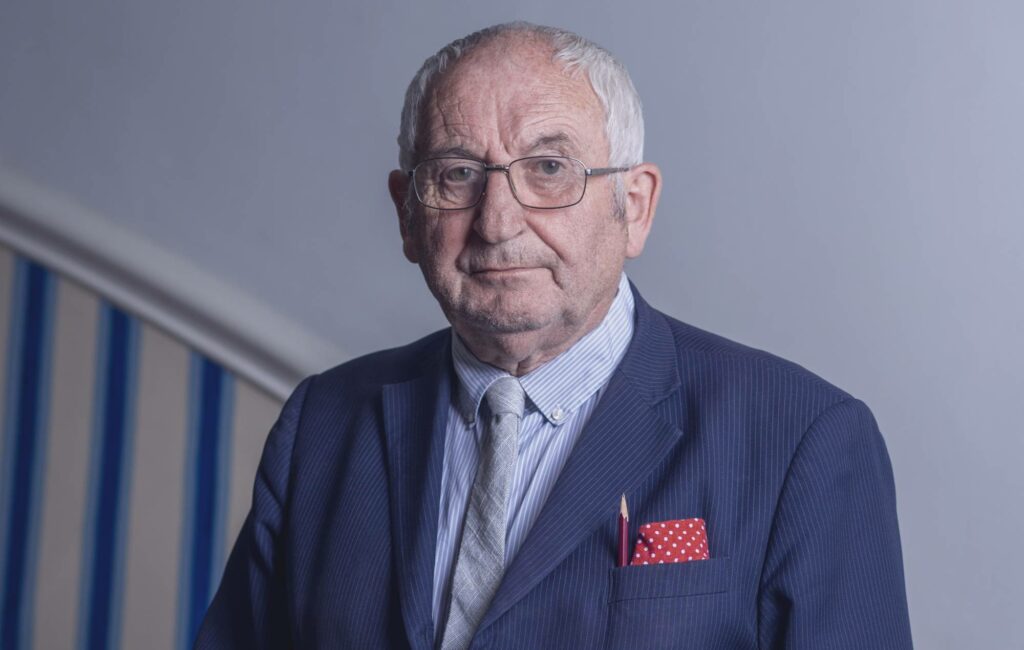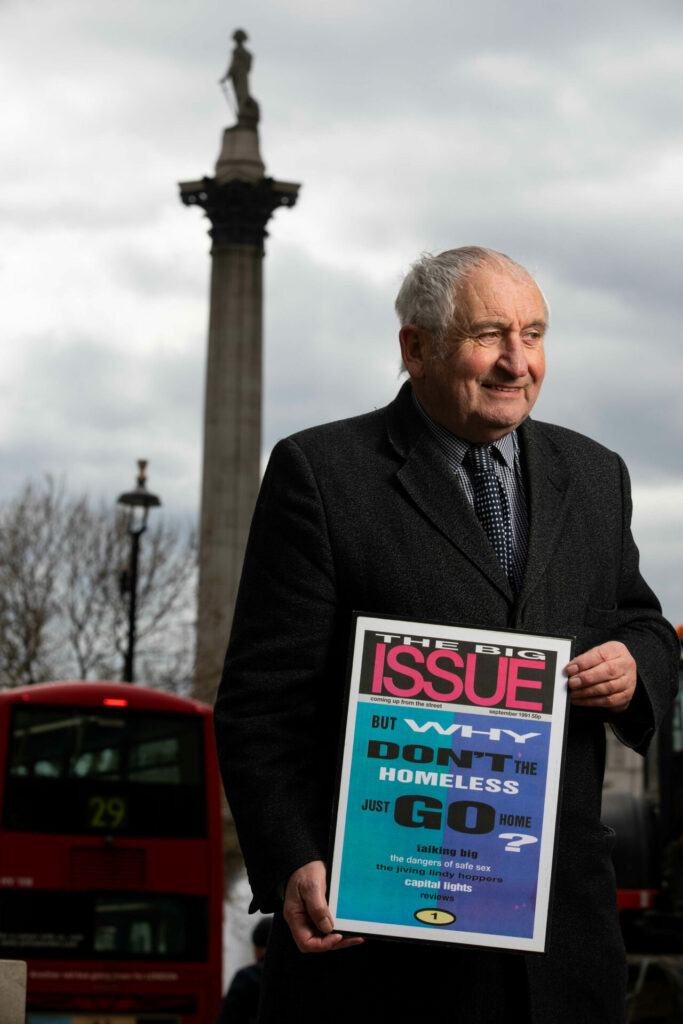Lord John Bird on 30 years of The Big Issue and homelessness in the UK: “We’re approaching a cliff edge”
As the Big Issue celebrates 30 years of helping the homeless, founder Lord John Bird tells Rolling Stone UK how when it comes to tackling poverty and homelessness, prevention is always better than cure

“The Big Issue was launched 30 years ago to support people facing destitution. Three decades on, the UK is still no further towards dismantling poverty or abolishing homelessness. In fact, following a pandemic which has pushed many below the bread line, we’re on the brink of experiencing a homelessness crisis worse than ever before.
Right now, 564,000 people are in rent arrears and 1.9 million jobs are at risk of permanent loss. We have seen an influx of people at risk of losing the four walls that they call home because of Covid-19 poverty. We need the Government to act – to support people to stay in their homes and to get people into sustainable jobs and training. We also need more long-term planning, to make sure we – as families, communities, businesses and as a nation – are more resilient to future emergencies.
The pandemic has provided the opportunity for “a great reset” in the way we think about planning for, and investing in, the future. It is vital that the decisions made over the coming months and years are even more visionary – and impactful – than ever before, to prevent today’s challenges seeding tomorrow’s crises.
As The Big Issue approaches its 30th anniversary, we’re shifting our focus towards prevention – ensuring that we stop mass homelessness from becoming an issue. So what can be done?
Building on progress made so far
Right now, Finland is the only country where homelessness is in decline. The ‘Housing First’ programme provides an apartment and counselling to anyone who becomes homeless – without any pre-conditions. The scheme has reduced homelessness by 30%.
Here in the UK, the “Everyone In” scheme has also shown that it’s possible to tackle rough sleeping – both at pace and effectively. By January of this year, more than 37,000 people sleeping rough had been helped into emergency accommodation. Such a monumental achievement is something we need to build on, or else we risk unravelling the progress we’ve made so far.
Housing First and Everyone In leave us in no doubt that street homelessness can be tackled. And ending rough sleeping once and for all would be an immense accomplishment. But in order to prevent homelessness altogether, it’s vital to build on this work and keep people housed through such schemes – but also stop the flow of more people coming into the system, too. This is a challenge which, seemingly, no country has cracked.

But there’s an urgent need to get this right – and soon – as we’re approaching a severe cliff edge as measures put in place to support people throughout the pandemic come to an end. We don’t want to look back in the months to come, in the midst of a homelessness crisis, and know that we could have done more to protect the most vulnerable in our society.
Covid-19 laws put in place to prevent mass evictions and repossessions have come to an end, and we will soon start to see the effects of this. Additionally, the furlough scheme will also end as the Universal Credit uplift is being reversed – stripping many of the safety net that has supported them throughout the pandemic. At the same time, we will see electricity and gas prices rise – estimated to push almost 400,000 households into fuel poverty.
This is a perfect storm that could see unprecedented numbers of people being made homeless through no fault of their own.
It’s more important than ever to invest in keeping people in their homes
The Government must pay off rent arrears and help those unable to pay their rent or mortgage due to Covid-19. It’s also critical to suspend no fault evictions until a Renter’s Reform Act is passed. Finally, we must see investment in supporting people into jobs and training in sustainable industries.
At this pivotal moment, investing in prevention is vital. Not taking action comes at a far greater cost; the cost to the Treasury can double or treble when someone becomes homeless, as the additional services people require come at a much higher price than preventative measures. Focusing on prevention would not only cost the nation far less, but it would ensure people at risk of homelessness are able to remain in their homes, and not slip into the treacle of poverty in the first place.
Planning for the long-term
Investing in people today by helping them find meaningful, paid employment and securing the roof over their heads will also give them the space, stability, and agency to think long-term.
Poverty itself imposes a mental burden and hurts our ability to think long-term. When you don’t know where your next meal is coming from or how you’ll pay the rent next month, you just don’t have time to think about the environmental impact of fast-fashion or the protection of the greenbelt.
Prevention is also at the heart of my Wellbeing of Future Generations Bill, currently making its way through the House of Lords. The coronavirus pandemic has shown we desperately need more long-term thinking and planning in Government. The ‘Wellbeing of Future Generations’ Bill, if passed into law, will help tackle threats such as the climate crisis, poverty, and pandemics, head on. The Bill was drawn first in the private member’s bill ballot, making it a priority during limited debate time in the House of Lords this parliamentary session.
At the heart of The Big Issue’s mission is the drive to dismantle the root causes of poverty, avoid the need for future generations of Big Issue vendors, and promote preventative action. The Bill is rooted in the same philosophy and aims to challenge orthodox thinking by brokering sustainable solutions to social problems.
Thinking about tomorrow starts today. And we must act now to keep people in their homes and allow them space to think about future generations.”
You can support our work by signing The Big Issue’s petition to #StopMassHomelessness and demanding the Government keeps people in their homes.
